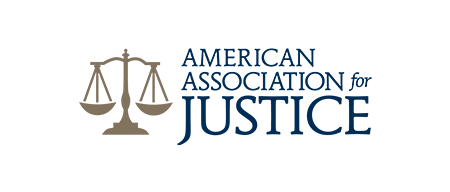The FDA safety communication issued a warning to the general public and the medical community that the agency is monitoring the side effects of SGLT2 inhibitors to determine whether changes need to be made in the prescribing protocol of the drug. The FDA wants patients to report any unusual side effects after starting the drug… read more
Category: Pharmaceuticals
Yaz Required To Provide New Information On Warning Labels
The Food and Drug Administration (FDA) has recently issued documents recommending that birth control pills such as Yaz should contain additional warnings concerning the risk of blood clots. The FDA noted that patients and doctors should be informed about the risks. A statement from FDA scientists provides, “We believe that, because of the consistency in… read more
Yaz Investigated For Increased Risk Of Blood Clots
Many types of birth control pills create risks of blood clots. However, new birth control research suggests that certain types of pills create an even higher risk of blood clots than others. Birth control pills that contain Drospirenone – such as Yaz, Yasmin, and Beyaz contain a two to three-time higher risk for developing blot… read more
FDA Removes 500 Unapproved Prescription Drugs From The Market
The FDA has announced that it will be seeking to remove nearly 500 unapproved prescription drugs from the market. In a statement, the director of compliance at the Center for Drug Evaluation and Research notes that they “don’t know what’s in them, whether they work properly, or how they are made.” If believe you may… read more
American Dangerous Drug Trials Being Conducted Overseas
A recent investigative article has disclosed some scary statistics. Even with FDA approval, prescription drugs kill nearly 200,000 Americans each year. As a result of consumer backlash and the raised awareness of the potential risks of dangerous drugs such as Avandia, Reglan, and Darvon/Darvocet, many U.S. drug companies have now moved their clinical trials overseas… read more
Darvon/Darvocet Pulled From The Market
Last week, the FDA finally pulled propoxyphene – sold as Darvon and Darvocet – from the U.S. market. For nearly 50 years concerns have been raised over the side effects of Darvon/Darvocet usage, including its toxicity even at low levels and its highly addictive properties. Additionally, it has not been shown to be very effective… read more
Doctors With Questionable Records Hired By Drug Companies
ProPublica, an independent news organization, has been investigating the connection between physicians and pharmaceutical companies, and how pharmaceutical company payments influence physician prescription practices, including the prescription of dangerous drugs such as Avandia, Levaquin, and Meridia. This in-depth report reveals that hundreds of doctors received payments from drug companies who had been accused of professional… read more
Can Parents Sue For A Vaccine’s Design Defect?
Last week the United States Supreme Court heard arguments concerning whether the parents of a girl who became sick shortly after being vaccinated against diphtheria, tetanus, and pertussis can sue the vaccine’s manufacturer. The parents allege a design defect. Nearly 5,000 potential lawsuits may result if the court allows the parents to sue, asserting a… read more
Avandia Clinical Trials Partially Stopped
Last week the Food and Drug Administration (FDA) advisory panel recommended that Avandia – a popular diabetes drug linked to a higher risk of heart attack – contain either stronger warning labels or restrict its use. Avandia is developed and manufactured by GlaxoSmithKline. In addition to a well-documented increased risk of heart attack, Avandia has… read more
Manufacturers of dangerous drugs should not be immune from liability
The Sixth Circuit Court of Appeals has recently submitted a question to the Food and Drug Administration requesting a response to its position on immunity. At issue is the claim by manufacturers that because the FDA regulates prescription drugs, once the drugs they make have received FDA “approval,” drug manufacturers cannot be held liable for… read more
 Knowledge Experience Compassion Service
Knowledge Experience Compassion Service 






